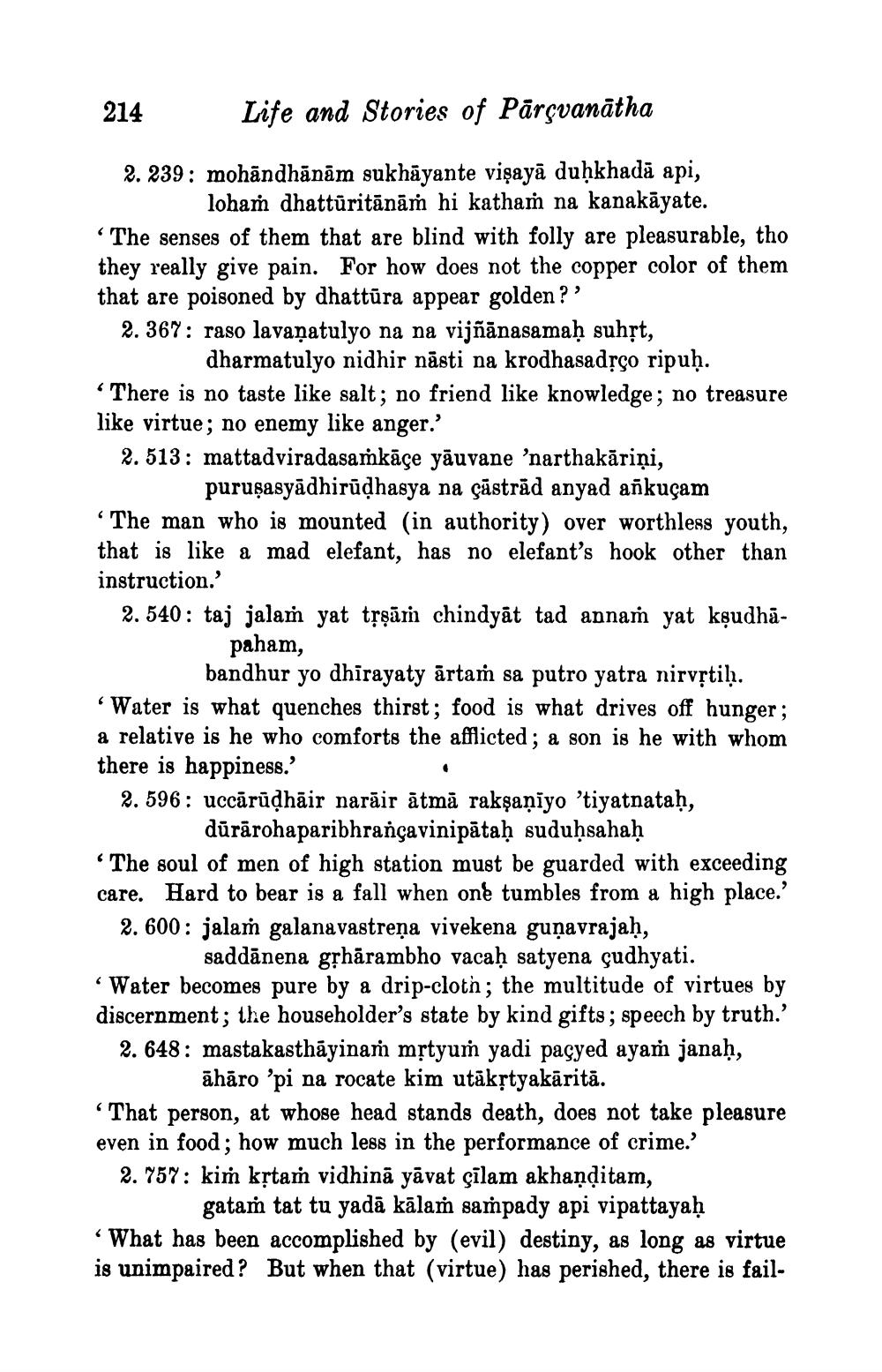________________
214
Life and Stories of Pārçvanātha
2. 239: mohāndhānām sukhāyante vişayā duḥkhadā api,
loha dhattūritānāṁ hi kathaṁ na kanakāyate. * The senses of them that are blind with folly are pleasurable, tho they really give pain. For how does not the copper color of them that are poisoned by dhattūra appear golden ? 2.367: raso lavaṇatulyo na na vijñānasamaḥ suhst,
dharmatulyo nidhir nāsti na krodhasadrço ripuḥ. There is no taste like salt; no friend like knowledge; no treasure like virtue; no enemy like anger. 2.513: mattadviradasaṁkāçe yāuvane 'narthakāriņi,
puruşasyādhirūụhasya na çāstrād anyad ankuçam “The man who is mounted (in authority) over worthless youth, that is like a mad elefant, has no elefant's hook other than instruction.' 2. 540: taj jalam yat třşām chindyāt tad annam yat kşudhā
paham,
bandhur yo dhirayaty ārtaṁ sa putro yatra nirvṛtiḥ. * Water is what quenches thirst; food is what drives off hunger; a relative is he who comforts the afflicted; a son is he with whom there is happiness. 2. 596: uccărūdhāir narāir ātmā rakşaņiyo 'tiyatnataḥ,
dūrārohaparibhrançavinipātaḥ suduḥsahaḥ The soul of men of high station must be guarded with exceeding care. Hard to bear is a fall when one tumbles from a high place.' 2.600: jalaṁ galanavastreņa vivekena guņavrajaḥ,
saddānena gļhārambho vacaḥ satyena çudhyati. Water becomes pure by a drip-cloth; the multitude of virtues by discernment; the householder's state by kind gifts; speech by truth.' 2. 648: mastakasthāyinaṁ mộtyum yadi paçyed ayam janaḥ,
āhāro 'pi na rocate kim utākstyakāritā. "That person, at whose head stands death, does not take pleasure even in food; how much less in the performance of crime.' 2.757: kim krtaṁ vidhinā yāvat çīlam akhanditam,
gataṁ tat tu yadā kālaṁ saṁpady api vipattayaḥ What has been accomplished by (evil) destiny, as long as virtue is unimpaired? But when that (virtue) has perished, there is fail




